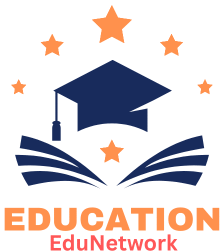The importance of educational consulting jobs is growing in today’s dynamic academic landscape. Better academic outcomes, more efficient teaching techniques, and students’ capacity to make sensible choices are supported by these viewpoints, which bridge the barrier between students, academic institutions, and legislators. If you are passionate about assisting students in making informed college decisions, modernizing educational practices, or improving school systems, educational consulting might be the perfect career path for you.
This article will go over what an educational consultant does, the steps to become one, the average salary for one, the best firms to work for, and how to get a job in this dynamic and rewarding field.
Educational Consultants Work in a Variety of Settings
An educational consultant is a trained expert who advises organizations, families, and children on how to best structure and implement their academic programs. The task at hand may include a wide range of activities, including:
-
Students and their parents seeking guidance on college applications and academic preparation
-
Institutions of higher learning that are aiming to improve their methods of teaching, composition of curricula, or compliance with requirements
-
Organizations in the field of education that develop new courses, software, or other instructional materials
Areas of Specialization for Educational Consultants
Educational consultants often specialize in one or more of the following areas:
-
Help in Applying to College
-
Curriculum Planning for Grades K–12
-
Advisor Services for Academic Institutions
-
Curriculum Development
-
Advising on the Subject of Special Education
-
Teaching Using Technology
-
Educational Leadership and Policy
Consultants with this level of expertise often operate independently, offering their services to companies, governments, NGOs, and universities.
The Reasons Why Educational Consultant Positions Are in High Demand
More systemic changes in education are reflected in the expansion of educational consultant roles, which include:
-
Intensified competition for university admissions
-
Educational technology is seeing rapid advances
-
A heightened emphasis on academic performance and standardized testing
-
Learning disabilities and the necessity of accessible education are becoming more widely recognized
-
There is a lot of pressure on schools to follow new federal and state rules
When looking for guidance through complex educational systems, schools and families often turn to educational consultants for assistance. In addition, with the rise of online learning and digital education platforms, there has never been a time when expert advice on how to incorporate technological tools into the classroom was more in demand.
Responsibilities and Duties of Educational Consultants
Educational consultants often carry out the following specific duties, which may vary according to their area of expertise:
1. Consultation with Families and Students
-
Identifying pupils’ areas of strength and improvement
-
Making preparations for college entrance exams or specialized lessons
-
A college or university recommendation
-
Prepare students to do well on standardized tests
-
Scholarship and financial aid application assistance
2. Advising on Educational Audits for School Districts and Individual Schools
-
Offering recommendations to improve course content
-
Educator and staff development
-
Assisting in the execution of policies
-
Evaluation of instructional software
3. Consulting for Government and Businesses
-
Designing educational resources or curricula
-
The provision of guidance on matters pertaining to the academic
-
Looking at school systems and proposing improvements
Having excellent organizational, analytical, and interpersonal skills is essential for any educational consultant work.
The Education Consultant’s Guide to Success
If you want to be an educational consultant, these are the standard operating procedures to adhere to:
1. Finish Four Years of College
Most educational consultants start off with a bachelor’s degree in education, psychology, child development, or a related field.
2. Work Your Way Up the Academic or Teaching Ladder
Practical experience is often essential in educational institutions. Many advisors have worked as:
-
Faculty members
-
School administrators
-
Guidance for scholars
-
Academics examining the field of teaching
3. Get a Master’s Degree (Recommended, but Not Required)
For consulting roles in higher education or specialized fields, a master’s degree in counseling, educational leadership, or education strengthens your qualifications.
4. Research Credentials
Certifications like these are helpful but often not required:
-
A Certified Educational Planner is known as a CEP
-
The National Board Certification for Teachers
-
Diploma in Exceptional Student Learning
Might potentially advance one’s career and establish one’s reputation.
5. Cultivate an Area of Expertise
Focusing on a specialty (such as online education, college guidance, or special education) might make you more marketable to potential employers.
Finding Work as an Educational Consultant: Where to Look
Websites like these allow you to search for job opportunities:
-
Job Board
-
Of course,
-
Job Board
-
Work in Academic Administration
-
Education Week
-
Organizations like Carney, Sandoe & Associates, IvyWise, and Lindamood-Bell that focus on educational consulting
Networking in the education field, attending conferences, and joining relevant organizations may also help in finding consultant employment.
Educational Consultant Salary Expectations
Consultants in the field of education may expect to earn an average salary that varies with factors including years of experience, specialization, and company culture. Here is an overview:
-
Entry-Level: Typical yearly compensation range: $45,000 to $65,000
-
Advisor at the Mid-Level: $65,000–$90,000
-
Acted Expert: Approximately $90,000 to $120,000 and up
-
Consultant Working on a Project Basis
When consulting for private customers or working independently, consultants’ hourly rates might range from $50 to $250 or more, depending on their expertise and the demand for their services.
Personality Traits of Proficient Educational Consultants
Educational consultants must possess the following skills to be successful in their roles:
-
Effective Communication: Involves breaking down complicated instructional procedures or data into simple, actionable explanations
-
Evaluation of Courses and Programs: Research and analysis of educational needs
-
Interpersonal Competencies: Working closely with kids, parents, and school officials
-
Flexibility: Dealing with educational trends that are always changing
-
Arranging: Keeping track of several clients or projects simultaneously
-
Competence in the Use of Technology: Familiarity with data tools, learning management systems, and educational technology tools
The Benefits of Working as an Academic Consultant
A lot of people are interested in working as educational consultants for the reasons listed below:
-
Adaptability: Many consultants choose to work remotely or set their own hours
-
Effect: Influences the efficiency of the institution and the results achieved by its students
-
Diversity in the Workplace: Collaborate on projects with people of all ages and from all walks of life
-
Embrace the Ever-Evolving Landscape of Knowledge: Making use of cutting-edge tools, strategies, and studies
-
Possibility of Career Growth: Potential for climbing the corporate, academic, or political ladder
Challenges to Think About
The work is rewarding, yet there are challenges:
-
Intense Competition, especially for prestigious or lucrative jobs
-
Demanding Routines, particularly during the admissions process
-
Time Constraints, especially when advising groups like schools or families
-
Constant Learning Required: In industries like education legislation or EdTech, continuous professional development is essential
Suggestions for Landing a Job as an Academic Advisor
Here are some tips that can help you in the job market and with search engine optimization:
Build an Influential Profile on the Web
Get your LinkedIn profile in tip-top shape and consider creating a website to showcase your skills, services, and endorsements.
Start by Volunteering or Freelancing
To build a portfolio and receive referrals, start by offering low-cost or free services.
Join Relevant Professional Groups
Such examples include:
-
The IECA (Independent Educational Consultants Association)
-
The National Association for College Admission Counseling (NACAC)
Stay Informed
Resist the urge to fall behind. Register for webinars, peruse educational blogs, and earn CEUs.
Make Your Resume and Cover Letter Unique
Highlight relevant teaching, advising, or curriculum experience. Use phrases like “educational policy analysis,” “curriculum design,” or “college admissions planning” to match job descriptions.
In Conclusion
Educational consulting offers a meaningful and rewarding professional option for those who are passionate about education. Helping schools improve their teaching techniques or students make crucial academic decisions are two examples of how these roles combine knowledge, compassion, and strategic thinking.
With the education industry’s continued growth, the need for educational advisers is only going to rise. You should consider opportunities in educational consulting if you are ready for a profession that is both dynamic and versatile, and if you want to make a major effect.
